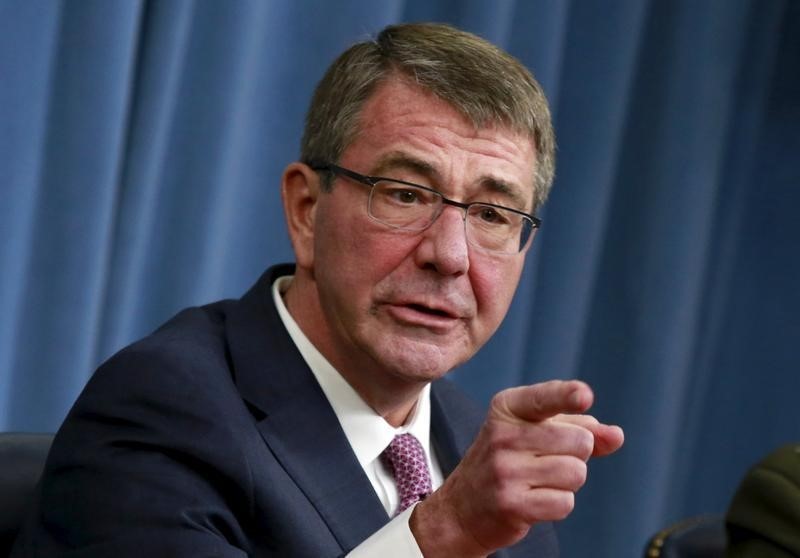(Cyberwar.news) One of the greatest emerging threats to U.S. national security is cyber attack, and it is something that Defense Secretary Ashton Carter was especially focused on as he attended the Shangri-La Dialogue in Singapore over the weekend. In particular, he is growing more concerned about the cyber threats from China, which includes no small amount of espionage.
But before heading to the annual Dialogue, Carter spoke to graduates at the U.S. Naval Academy in Maryland, where the subject, again, was China and the rules-based liberal international order that Beijing seems intent on ignoring or re-writing in its favor.
As noted by The Interpreter, Carter gave similar speeches before last year’s Dialogue, in a bid to lay out the Obama administration’s toughening position before an important summit. However, Carter’s tone appeared different this year:
In a speech on 6 April 2015 at the McCain Institute at Arizona State University, Carter made a speech largely selling the Obama Administration’s ‘rebalance’ to the Asia Pacific. This was the famous speech where Carter said he equated passing the TPP with possessing ‘another aircraft carrier.’ As Sam Roggeveen pointed out at the time, Carter’s linking of the TPP with America’s military capability likely did not go down well in the region, and added some ammunition for those who believe America’s rebalance to the region is a containment strategy aimed at China.
That said, Carter couched his statements in this way:
TPP would provide these businesses – and all of us – a more level playing field and more opportunities to succeed. It would do so by requiring these other countries to adopt the standards that we hold ourselves to here in the United States, such as: government transparency, intellectual property laws, a free and open internet, environmental protections, and workers’ rights. TPP would also lower barriers to American goods and services in the Asia-Pacific’s fastest growing markets.
In the same speech, Carter said the U.S. was growing concerned about China’s “opaque defense budget…it’s actions in cyberspace…and it’s behavior in places like the South and East China Sea.” Carter then linked China’s maritime activities to its cyber activities.
“Now, our focus on upholding principles extends beyond the maritime domain. For example, China wants its companies that depend on the Internet to flourish in the global marketplace so it can lift its people’s prosperity to globally-comparative levels after decades of poverty,” he said. “And yet, China’s cyber-actors have violated the spirit of the Internet – not to mention the law – to perpetrate large-scale intellectual property theft from American companies. That’s why the President has been determined to develop international understandings of behavior in cyberspace.
“China also wants and enjoys all the benefits of free trade and a free Internet, while sometimes restricting both as they apply to them,” he continued.
“In sum, on the seas, in cyberspace, in the global economy, and elsewhere, China has benefited from the principles and systems that others have worked to establish and uphold, including us. But instead of helping sustain those very principles and systems that have served all of us so well, for so long, instead of working toward what… quote, called the ‘win-win cooperation’ that Beijing publicly says it wants, China sometimes plays by its own rules…undercutting those principles,” Carter said.
The U.S. has been focusing more on China’s cyber activities in recent years, though the Obama administration has not publicly called Beijing out for its alleged hacking of government systems. Carter’s emphasis on the Chinese cyber threat, as well as his linking of it to maritime issues in the South China Sea, appear to be a new and unique way of letting Beijing know that the two are equally important to Washington.
More:
- Cyber Sell-Out? Obama Administration ‘Agrees’ Massive Hack Of OPM Database NOT Sponsored By Chinese Government
- Obama Cyber Security Policies Producing Few Results Because President Refuses To Act
- U.S. And China Reach First-Ever Hacking Agreement, But Only After Beijing Got Nearly Everything It Wanted
Cyberwar.news is part of the USA Features Media network. Check out our daily headlines here.



